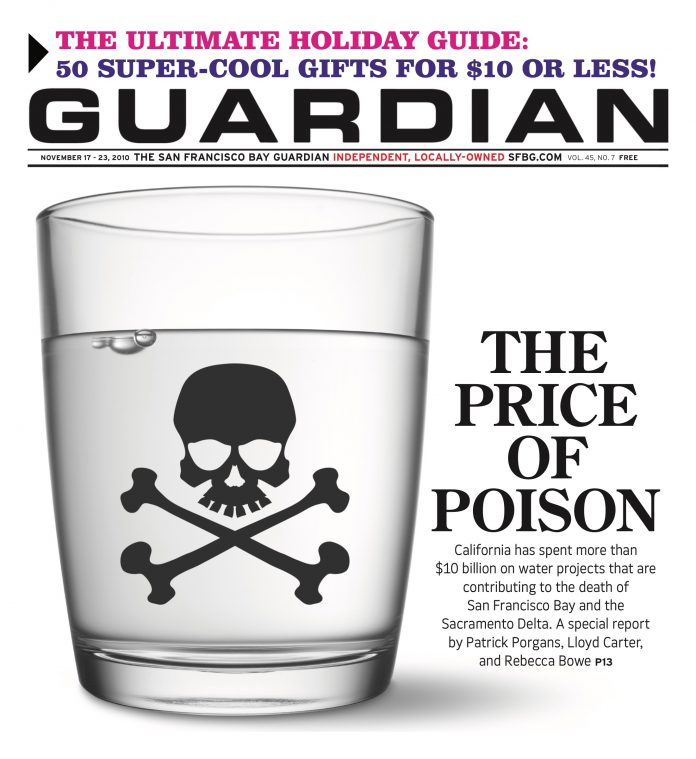arts@sfbg.com
FILM In recent years, on the film festival circuit at least, it seems like everything Romania puts out is gold — not that it puts out more than a handful of features per year. This vogue has overshadowed trends elsewhere in the region, notably neighbor Hungary, whose more richly historied, prolific film industry has produced some very interesting work of late. (On a less personalized level, its relatively pristine period architecture and low overhead draw a lot of foreign film shoots — Budapest subbing for Victorian
London, etc. — while different factors make it one of the world’s leading production hubs for porn.)
A few features have broken out commercially in the last decade, like Kontroll (2003), Hukkle (2002), and Fateless (2005) — disparate films united in creating spectral, macabre worlds on the border of horror, whether set in a subway system, quaint village, or Auschwitz. But several emerging directors, far more influenced by such native auteurs as Miklós Jancsó and Béla Tarr than the borderless film education DVD and cable can afford, have so far proved too idiosyncratic to travel much beyond the festival circuit.
A rare chance to see some of that work outside those confines can be had this week at the Roxie, which is hosting a short-run double bill under the umbrella "Magyar Tales of Kornél Mundruczó." Protégé of epic-enigma engineer Tarr — whose exasperatingly slow creative process was one alleged factor behind the suicide of the producer fictionalized in this year’s French drama The Father of My Children — sometime actor Mundruczó has written and directed several shorts and four features to date.
His 2002 debut Pleasant Dreams was a miserabilist frieze of dead-end rural youth. His newest, Tender Son: The Frankenstein Project, mixes similar elements with some taken directly from Mary Shelley. Its "monster" is a teenager exacting revenge for a life defined by abandonment, the director playing himself as … a director, one intrigued by our sociopathic antihero even after he commits several meaningless murders. Son was loathed by many
at Cannes and Toronto, but that’s not really discouraging — Mundruczó’s films are of stubbornly minority appeal, either meditative or watching-paint dry in pace, pretentious or perfect in their narrative simplicity.
The Roxie is playing the two features between. Delta (2008) was originally planned as a revenge saga. But when lead actor Lajos Bertók abruptly died mid-production, Mundruczó replaced him with composer Félix Lajkó and overhauled the script to suit his more reticent personality. Lank-haired, scruffily bearded Mihail (Lajkó) returns to his native Danube village after 25 years’ absence. No one is happy to see him save sister Fauna (Orsolya Tóth) — and she isn’t the effusive type, either.
Diffidently rising above the pervasive culture of loutishness, this somber duo attracts resentment (toward the roll of cash Mihail has to bankroll constructing a well-isolated house upriver), gossip (over their imagined, then real, incestuousness), and eventual violent hostility. Delta is a parable of intolerance as poetically primitive as early Herzog (there’s even some Popol Vuh on the soundtrack); its utter affectlessness will strike you as hypnotic or maddening.
On another note entirely — well, almost — the director’s prior Johanna (2005) is all interior tracking shots to Delta‘s stock-still rural pictures, stillness, and sonic sparseness replaced by the sound of a whole lotta music. At the start, survivors from a large-scale accident are hauled into a subterranean hospital, moaning and bleeding. Then suddenly a tenor doctor trills "The rehearsal is over! Let the dead and injured get up and walk," which they do. All but Johanna (Tóth again), a junkie who’s snuck in to steal pharmaceuticals. Caught, she falls down stairs, lapsing into a coma. On awakening, a smitten medic (Zsolt Trill) trains her as nurse. Her healing prowess proves unconventional, however, even miraculous — both sacred and profane, leading to a martyrdom that (like Joan of Arc’s) cements her sainthood.
A 86-minute opera created for the screen, Johanna is musically rich — who is composer Zsófia Tallér and why isn’t she getting major commissions abroad? — but also wholly cinematic. While seeming an anomaly, its cryptic characterization and suspicious view of society are of a piece with Mundruczó’s other work to date.
MAGYAR TALES OF KORNÉL MUNDRUCZÓ
Nov. 22–24, $5–$9.75
Roxie
3117 16th St., SF
(415) 863-1087

